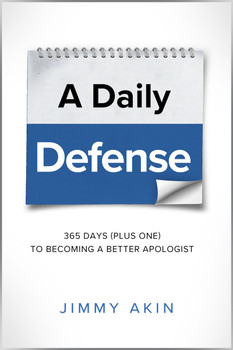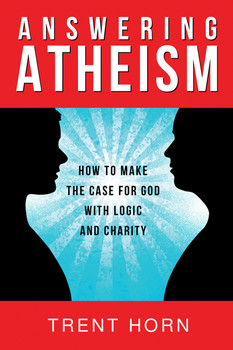Description
“The God of the Bible is a bloodthirsty dictator.”
“Extraordinary claims require extraordinary evidence.”
“Religion is the cause of war, suffering, and intolerance.”
“Do you believe in Santa Claus, too?”
(Etc.)
If you have spent any time on Twitter, in a college quad, or at the dinner table with a freshman philosophy major, you’re probably familiar with the litany of slogans that religious skeptics employ in an attempt to rescue you from the foolish belief that God exists.
Even our public schools and mainstream media often can’t help but parrot the tropes and memes that seem to leave thinking people with no alternative but to embrace atheism.
How can a Christian respond?
You can ignore them—but then you miss a chance to evangelize and to strengthen your own faith. You can spend years mastering theistic apologetics before you reply—but that takes, well, years. Or you can let John DeRosa (Classical Theism) help. In One Less God Than You, he breaks down twenty of the most common atheist challenges, exposes their substantive and logical weaknesses, and shows you how to craft effective answers.
Atheism is more aggressive and widespread than ever before, so we believers have a crucial task before us. Read One Less God Than You and prepare yourself to respond with the joyful truth that God is real.
"If every Christian adult and teenager read this book, atheism would lose most of its attractive power. These slogans are slinged and parroted across the internet as if they present serious blows against Christianity. But as John DeRosa shows here, they're typically shallow and juvenile. Read this book, understand these atheist objections, and you'll never be afraid of them again." -- Brandon Vogt, founder of ClaritasU and author of Why I Am Catholic
Additional Information
Author: |
John DeRosa |
Format: |
eBook, 176 pages |
Other Formats: |
softcover|/one-less-god-than-you/ |
1 Review
-
Practical
I'm always in search of books that defend the faith, and I love that the author uses Greg Koukl's book Tactics as the basis of his book. He's very pragmatic in his approach, acknowledging that it's not a once-and-done for bringing people to God. This is a very practical book to have in your toolkit. Highly recommended!


















